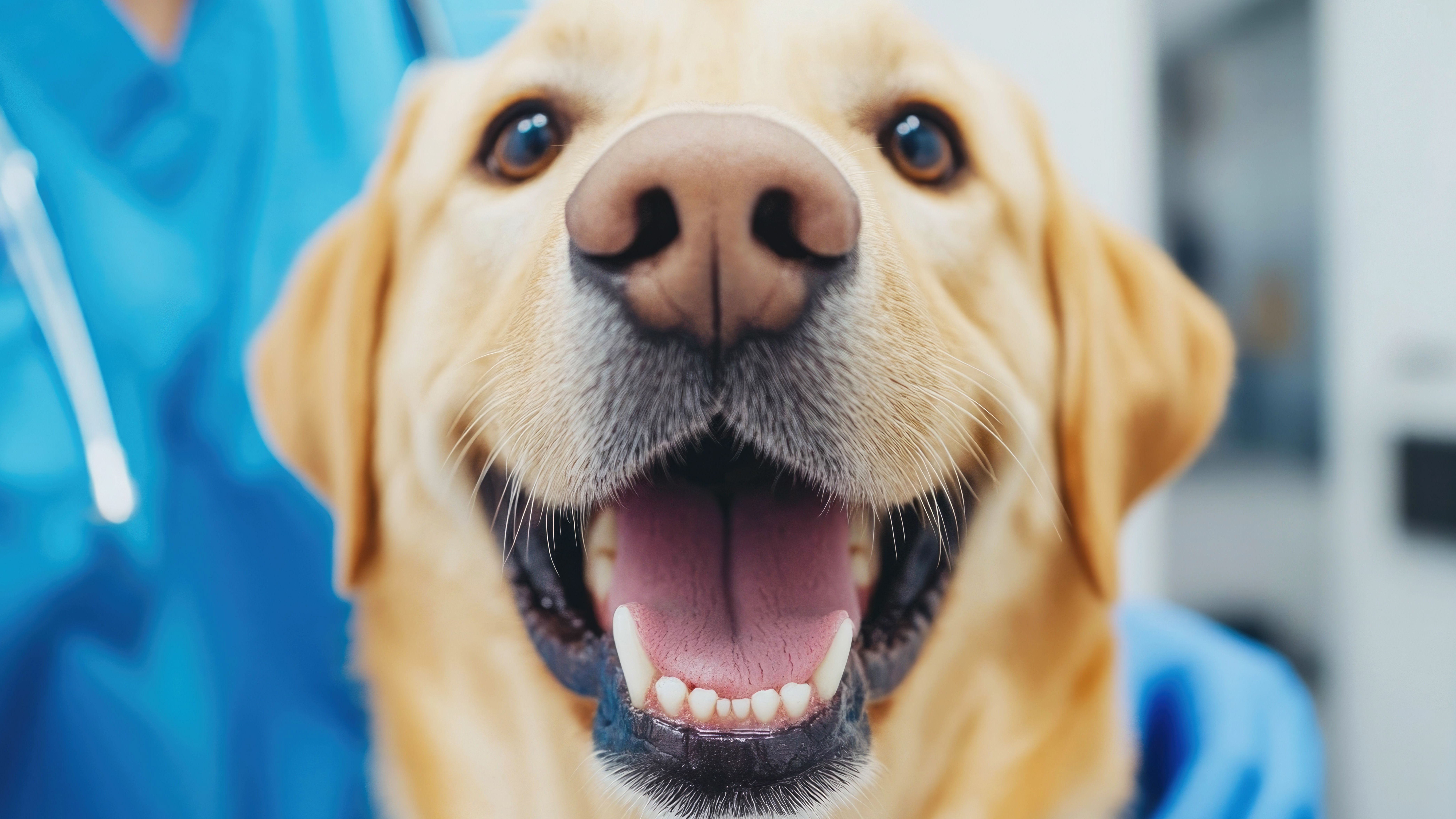
Dental health complications in dogs
How poor dental hygiene can affect a dog's overall health

Did you know that for your dog poor dental hygiene isn’t just about bad breath and stained teeth? Poor dental hygiene for your dog can lead to serious health complications, which could affect organs like the heart, kidneys and liver. For instance, if left untreated, bacteria from gum disease can spread to other parts of the body, causing infections and chronic pain that can lessen your pet’s quality of life.


Complications arising in dogs from poor dental health
Dental abscess
Tumours in the mouth
Broken teeth
Retained baby teeth
Periodontal disease: a condition that results in bleeding gums, bad breath, and ultimately tooth loss.
Kidney and liver disease: oral inflammation allows bacteria in the mouth to enter directly into the bloodstream. Once circulating, these bacteria can travel to and establish in other organs, especially the liver and kidneys.
Loss of weight and appetite: dental issues may cause feeding to become an uncomfortable or even painful process for your dog. As a result, they may be reluctant to open their jaw and chew food properly and may drop food from their mouth while eating. Over time, the reluctance to eat can take a toll on your dog’s body condition, leading to weight loss
Heart disease: chronic inflammation from periodontal disease can also increase a dog’s risk of heart disease. Circulating bacteria can cause an inflammatory condition known as endocarditis. Studies have also shown that dogs with dental disease have an increased risk of congestive heart failure, a progressive and potentially fatal disease.
Dental disease complicates diabetes in dogs: inflammation and infection associated with periodontal disease can affect blood-sugar metabolism.
Pathologic jaw fracture: inflammation also commonly leads to periodontitis, or loss of the supportive, structural tissues surrounding the teeth. When white blood cells attempt to clear accumulating bacteria, the resulting inflammatory process erodes the supporting tissues of the tooth. Over time, this destruction causes structural weakening of the tooth sockets and jaw bones.


What you can do to help your pet’s dental hygiene at home
Daily tooth brushing or at least three times a week with a specially formulated pet toothpaste and toothbrush. Introducing brushing into a pet’s routine may seem daunting, but with a gentle introduction and a little training, it should not be an unpleasant experience for either of you. If you are unsure of how to brush your pet’s teeth, ask your vet for instructions or a demonstration.
Special diets, chews and toys are also available, and these can help to slow the build-up of plaque. Nevertheless, daily brushing remains the gold standard.
Even with good preventive measures at home, most dogs will need a regular scale and polish, just as some people need to visit the dentist more regularly, speak to your vet today, remember consults are FREE at Animal Trust. Read about our dental services.


